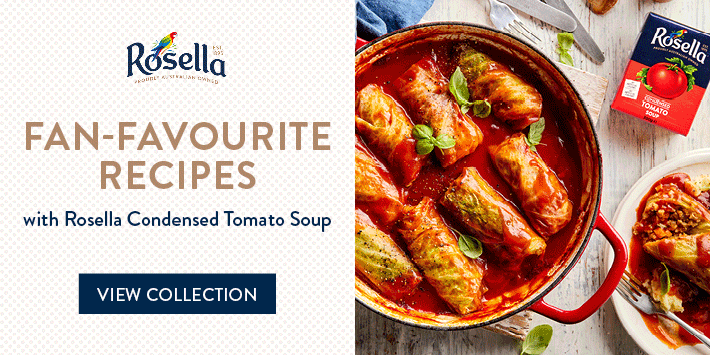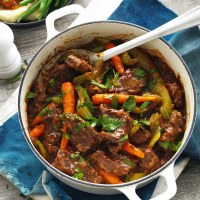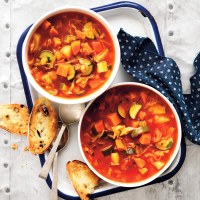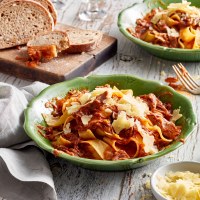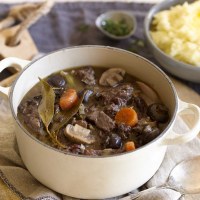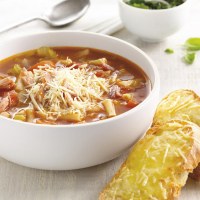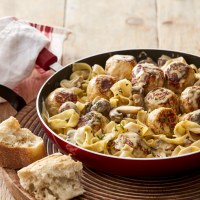It’s time to start freezing your soups and stews
Most soups and stews freeze really well, making them a winter batch-cooking wonder. You can come home from work, pop your meal on the stove and have a wholesome, comforting dinner ready in as little as 10 minutes! If that’s not motivation to start batch cooking the recipes below, we don’t know what is.
To get the best results, follow these tips.
How to freeze soup or stew
- Cool the dish completely. Leave at room temperature for 30-60 minutes or until cooled.
- If there is any meat on the bone, remove bone and shred or cut up meat. Return to sauce.
- Portion out into serving sized containers, ensuring any solids are submerged in liquid. A good rule of thumb is 250ml to serve one person. 1 litre containers are convenient for families of four.
- Save room by ladling soups or stews into plastic freezer bags that you can lay flat in freezer. Freeze until solid on a tray, then stack them up.
- Label each container clearly with waterproof markers with the date and contents.
How to defrost
Place the containers or zip lock bags in the fridge to defrost, it can take up to 2 days depending on the size of the container. Reheat thoroughly in the microwave or on the stove top, adding a splash of water if needed.
How long can you freeze soup and stew?
Most dishes are best eaten within 3 months in the freezer. After that time, they'll still be safe to eat but might not be as tasty as the day they were made.
What to avoid when freezing soups and stews
- Avoid freezing soups and stew containing cooked grains such as pasta and rice. These will tend to become mushy on thawing. Instead, keep them separate and make fresh rice or pasta to serve.
- Dishes containing cream, milk, yoghurt or coconut milk have a tendency to split once reheated. For best results, add any dairy once the food has been reheated. If your soup has already split, try putting it in the blender to smooth it out.
- Recipes thickened with cornstarch will become runny again once defrosted. Simply add more cornstarch slurry and bring to boil to rethicken your dish.
- Egg drop soups don't tend to fare well in the freezer. The egg can turn rubbery, leaving you with chewy strings rather than silky strands. Prepare your soup up to when you add the egg, then freeze. Add the egg once defrosted.
- Fresh greens such as green beans, bok choy and herbs will become soggy in the freezer. Wait to add these after you've reheated your dish.
Recipes for soups and stews
Get cooking with the recipes below! Follow the tips above and you'll have an easy meal waiting for you in the freezer.
GET THE RECIPE: Slow Cooker Beef Stew with Fruit Chutney by Rosella
This stew is ideal for freezing! Serve it with mashed potatoes, couscous or bread for an easy meal any night of the week.
GET THE RECIPE: Butter Chicken Roti Bowls by Passage to India
Freeze this easy Butter Chicken filling, then all you need to do it reheat it and bake the roti bowls in the oven. Too easy.
GET THE RECIPE: Sri Lankan Lamb Shank Curry by Passage to India
Shred any leftover shanks from this recipe and freeze it in the sauce. Then you can reheat it to enjoy in roti wraps, sandwiches or simply over rice.



